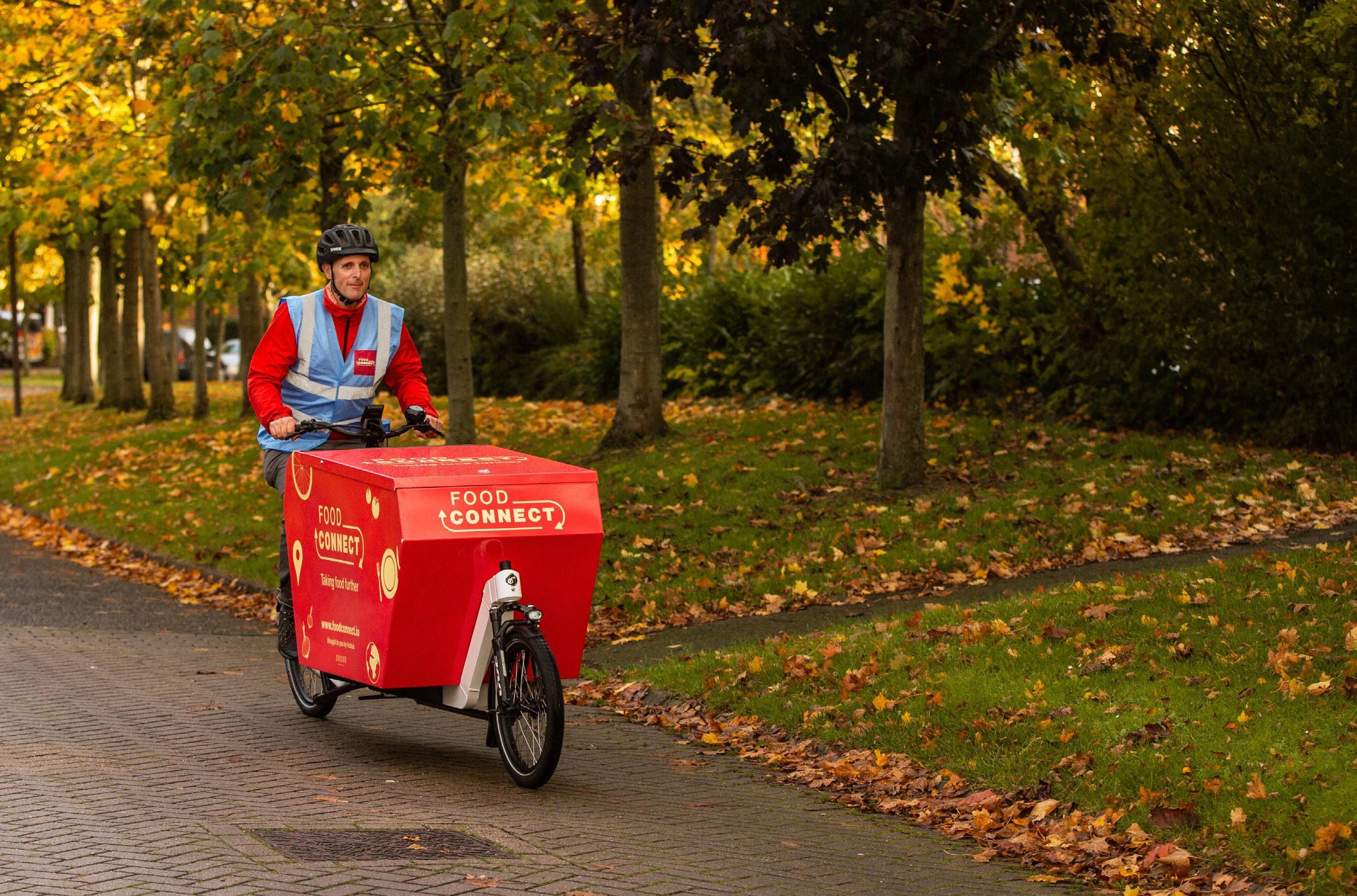
3 minute read
Scaling environmental impact
From cutting food waste to boosting recycling, we’re building on successful elements of our trials, to create effective, scalable models which expand our environmental impact.
Food redistribution
Over the year, our Community Fridge Network grew by a further 172 new fridges, taking the total to 414 fridges (and growing). We estimate that the CFN has prevented over 6700 tonnes of food from going to waste. That’s the same as 16 million meals being redistributed over 1 million visits. collectively preventing over 6700 tonnes of food from going to waste. That’s the same as 16 million meals being redistributed over 1 million visits.
414 fridges in our ever growing network of Community Fridges (November 2022)
16m meals wort h of surplus food shared
21 new jobs created for people in local communities.
Food Connect, established in Milton Keynes, provides a reliable way of redistributing surplus food from stores to residents and organisations through a fleet of electric vans and e-cargo bikes. In 2022 new services launched in the London boroughs of Southwark and Lambeth, redistributing 300 tonnes of surplus food that would have gone to waste. The equivalent of 770,000 meals went to 12 community groups helping almost 53,000 families, saving over 10 tonnes of greenhouse gas emissions from transport alone, and creating 12 green jobs. Our ambition for 2023 is to expand the network even further.
Sustainable diets
Our successful Sparking Change trial with Marks and Spencer (M&S) in 2021 helped customers adopt healthy diets that are good for the environment. The project’s evaluation, supported by an academic partner at the University of Surrey, found that three-months after the trial 90% of participants were eating less meat, 90% wasting less food and over 70% were also cooking more from scratch and eating more food in season, plus they reported feeling healthier and having created more sustainable homes. Consequently, M&S scaled the project nationally in 2022 to their 14 million Sparks customers. Shoppers visited M&S’ online tips and inspiration about reducing food waste and eating more plant-based foods over 230,000 times in just two months, demonstrating people’s appetite to eat better for themselves and the planet.
“My wife, son and I are now cooking and eating together. My son now asks what we’re cooking for tea, not just what we’re having for tea. He loves to bake with me, we’ve made everything from hot cross buns to gingerbread. I used to just be his dad, but now I’m his friend as well.”
Boosting reuse, recycling, and cutting waste
Since 2018 we’ve been testing the best ways to boost on-thego recycling in city centres, aiming to identify and amplify best practice across the UK.

Last year we expanded our #InTheLoop campaign to its seventh location, with the iconic bins rolled out to Telford & Wrekin council as well as the London borough of Lambeth. In Lambeth alone, the campaign saw a reduction in the contamination of litter in recycling bins by 70%, whilst increasing the quantity of recycling by over 140%.

Supported by Ecosurety, we’ve now compiled the learnings from all the #InTheLoop projects into a free toolkit blueprint for transforming recycling on-the-go funding squeeze faced by councils, we’ve launched grant funds, with support from the Coca-Cola Foundation and McDonald’s to enable councils across the UK to put the toolkit into practice to provide effective recycling on-the-go. Ultimately this grant fund and toolkit are a step towards our ambition to make #InTheLoop the standard approach for on-the-go recycling.
Meanwhile our ‘Cup Fund’ projects, funded by the Starbucks 5p cup charge to facilitate widespread cup recycling, have between them collected over 4 million coffee cups for recycling.
The voting Ballot Bin continues to scale via Hubbub’s social enterprise arm, selling over 600 in 2022, from Canada to the Cayman Islands. Ballot bins have been shown to reduce cigarette litter by up to 46%.
In 2021 Hubbub and Just Eat explored how to support customers to reduce their food waste from takeaways in the ‘Food Waste Race’. The insights led to three big changes for Just Eat in 2022. First, a global food waste busting campaign targeted customers across 14 countries, with food saving tips and inspiration pop-ups when ordering via the app. Second, a sustainability guide was shared with up to 50,000 UK partner restaurants. And finally, clearer guidance was given to restaurants on portion sizes, so customers can make informed choices and waste less food.








